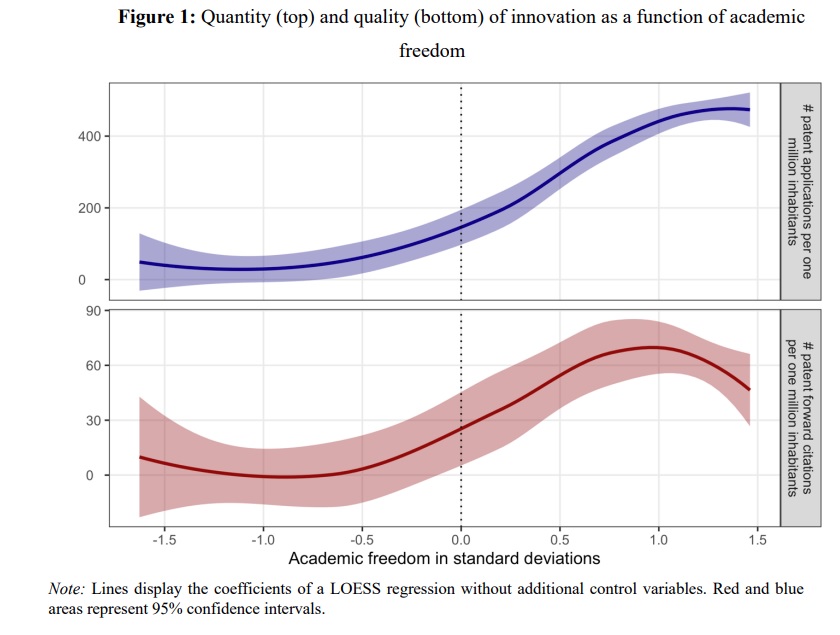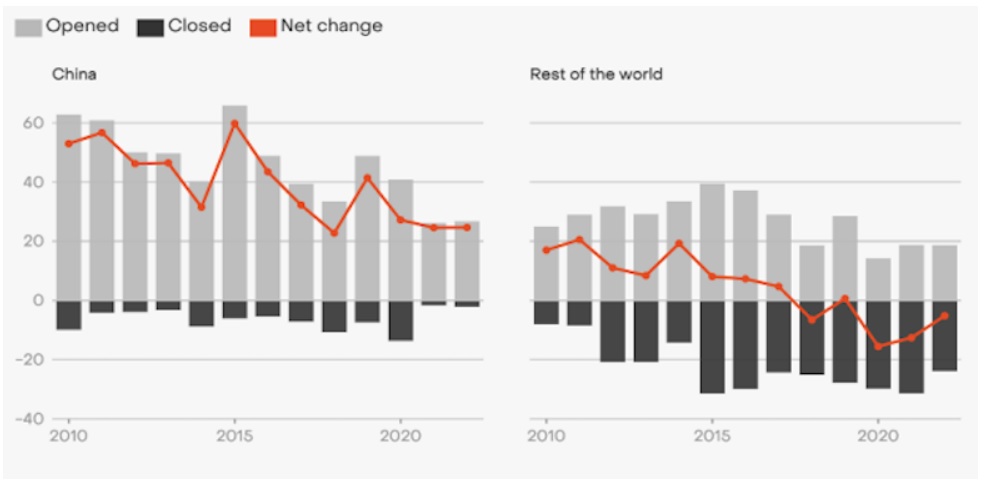Like many, we enjoyed the TV show Succession (Editor: It’s not TV, it’s HBO. Me: No, it’s Max) but admit it took a while for us to warm to it. It was not until someone explained to us it was really a sitcom that we finally got and enjoyed the show. And so we were glued to our television for the series finale a few weeks ago. We also listened to an interview with the main creator, Jesse Armstrong, and executive producer Frank Rich on Fresh Air by the indispensable, Terry Gross. During the interview, Rich and Armstrong traipsed into one of our main pet peeves—an artistic creator claiming that people don’t change. This is a trope of prestige TV. Nearly all the great shows have maintained this fiction. David Chase espoused the same philosophy when making the Sopranos. It is nonsense. People change all the time—we’ve seen it anecdotally in our own lives and we bet, if you really think hard about your own, that you have too. Armstrong tried to claim that most TV shows maintain the trope of growth of characters in a narrative. That may be true for some narrative forms but as we said, for prestige TV, which mostly has focused on anti-heroes, the idea that people don’t change is the true cliché. Rich and others probably feel their cynicism makes them appear wise, that they really understand our corrupt, hopeless world. But it actually betrays their inability to see the world as it really exists in all its complexities. Perhaps they need to get out and stalk our strange and wonderful globe where change is truly the constant, even in human beings. And so we ask what is changing in Vietnam, why freedom is a practical good, and has China reached peak emissions? It’s this week’s International Need to Know, holding hands with international information more tightly than Shiv and Tom, and gazing out at a sea of data less remorsefully than Kendall.
I had the privilege and honor of working with Alice Madsen when she was at Highline College. Ostensibly she was the Dean of Instruction but in reality she was not only the glue that kept the institution intact but the nails, floorboards, sheetrock and all the rest. No one worked harder, nobody provided me with better advice and no one was more helpful than Alice. She was not only smart and always finding ways to make things work but incredibly kind and thoughtful. Such people are far and few between and now there is one less in our world after Alice succumbed to liver cancer. RIP
Without further ado, here’s what you need to know.
Whither Vietnam
If Vietnam’s economy continues to grow and if it builds the necessary infrastructure and continues to reform economically, the big question is, will it also reform politically? Will Vietnam take the path created by South Korea and Taiwan? Or has China forged a new trail down which all non-democracies will now tread? Vietnam too could liberalize economically but use China’s tactics to ensure continued control politically.—from our book, Challenging China, published just over two years ago, but still completely relevant to today’s world
Late last week came news that Hoang Thi Minh Hong, an environmental activist in Vietnam, who we met last year, had been arrested by the government on charges of tax evasion. Hoang is the latest in a number of such activists detained by Vietnam’s government over the last year, all charged with tax evasion–freedom of speech is being turbo taxed out of existence in the country. As you see in the above quote from our book, Challenging China, we have long been worried about what path Vietnam would take politically in the coming years. Hoang’s arrest is receiving international attention, as it should, including in a statement issued by the U.S. State Department. People wonder if the rise of an increasingly expansionist and authoritarian China is leading to a new Cold War. Cold, hot or lukewarm, those countries dealing with China’s aggressive tactics will face difficult choices. The Vietnam Communist Party views Xi Jinping’s domestic tactics of recent years as a guidebook rather than a warning. The U.S. and Vietnam’s relationship has grown ever closer in recent years as Vietnam worries about China’s expansionism in the South China Sea. But the calculus for Communist Party of Vietnam General Secretary Nguyễn Phú Trọng may be determined more by what keeps he and his party in perpetual power than by how big a threat China is. The seas, South China or otherwise, that countries will navigate in the coming months and years will be ever choppier and murkier.
Freedom Isn’t Just Another Word
We’ve been doing far more long-distance driving than usual and to pass the time we find ourselves listening to music rather than podcasts. On one drive, a cover of Kris Kristofferson’s Me and Bobby McGee came on our Spotify song list with the famous lyrics, “Freedom’s just another word for nothin’ left to lose,” which have always struck us as wrong, or at least horribly incomplete. We’re guessing, for example, Hoang Hong sitting in her cell believes freedom means more than that. And freedom is not just some airy concept full of hope and optimism—lack of it has bad real-world circumstances. To cite just one example, a recent study by a raft of researchers (five) from a yacht of academic institutions (seven) finds that decreases in academic freedom over the last decade has led to less innovation. The researchers examined 157 countries patent output and quality of patents, as well as analysis of academic freedom conducted by the V-Dem Institute at the University of Gothenburg. The paper found that, “A one standard deviation improvement in academic freedom corresponds to 300 more patent filings and 50 more forward citations after five years per one million inhabitants.” Patents are problematic measures of innovation but it certainly makes sense that restricting academic freedom damages innovation. Freedom really isn’t just another word. It’s one of the most important and we should define it carefully and protect it or risk real-world negative consequences.
There are hundreds of covers of Kris Kristofferson’s song–ranging from Johnny Cash to Thelma Houston–with Janis Joplin’s version the most famous. You can make a good case that Jerry Lew Lewis’s is the most rollicking but, of course, our heart’s with Dolly’s.
China Corner: Peak Emissions This Year?
We’ve told you about China’s increasing dominance in electric vehicles and over the years have chronicled its rapid installation of solar power. All of this and more is leading BloombergNEF to estimate that China’s total emissions will peak this year (see first chart below). The goal was for China’s emissions to peak in 2030 on the way to becoming net-zero in 2050. But if BloombergNEF is correct, than China will achieve peak emissions seven years ahead of schedule. Lots of people think reaching net-zero, in China or elsewhere, is not likely by 2050. But perhaps rather than being too optimistic, instead they are too pessimistic. On the other hand, as you can see in the second chart below from Carbon Brief, coal capacity in China continues to grow (but is decreasing outside of China). There are still huge challenges and tons of work to be done on climate change but as we always remind you, we’re doing better than people realize.






